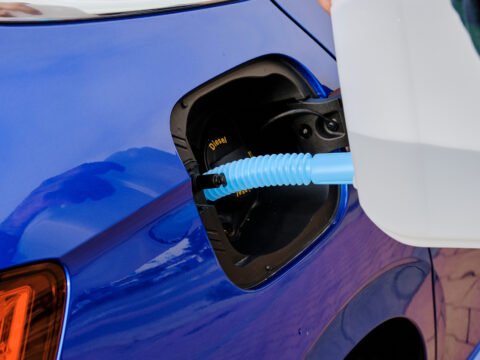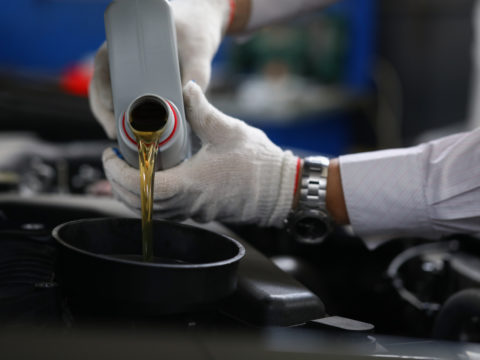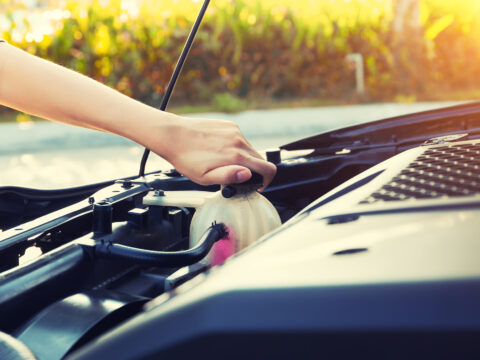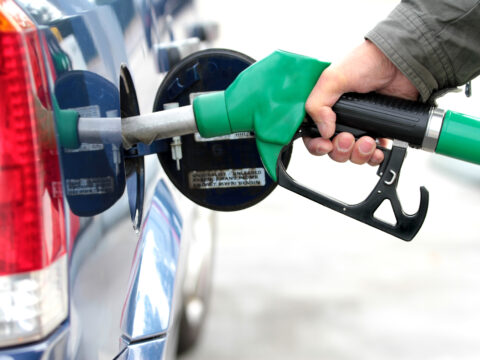Do you have a second vehicle that doesn’t get used as often as your main car? Or maybe you filled up your riding lawnmower just in time to store it away for the winter months.
Contents
Will Gas Go Bad While in the Car Tank?
Gasoline does have a limited shelf life. Many factors determine how long gas lasts before it goes bad. It deteriorates over time and can harm your engine. Below is a list of these negative factors and some tips on prolonging the shelf life of your gas.
If you suspect your car has old gas, the engine will sputter when idling. Your car may also be hard to start. These are a few signs that the gas may be old, but when in doubt, just smell the gas to see if it soured.
If your car has been sitting for more than a couple of months, it’s best to put in fresh gas before attempting to start it.
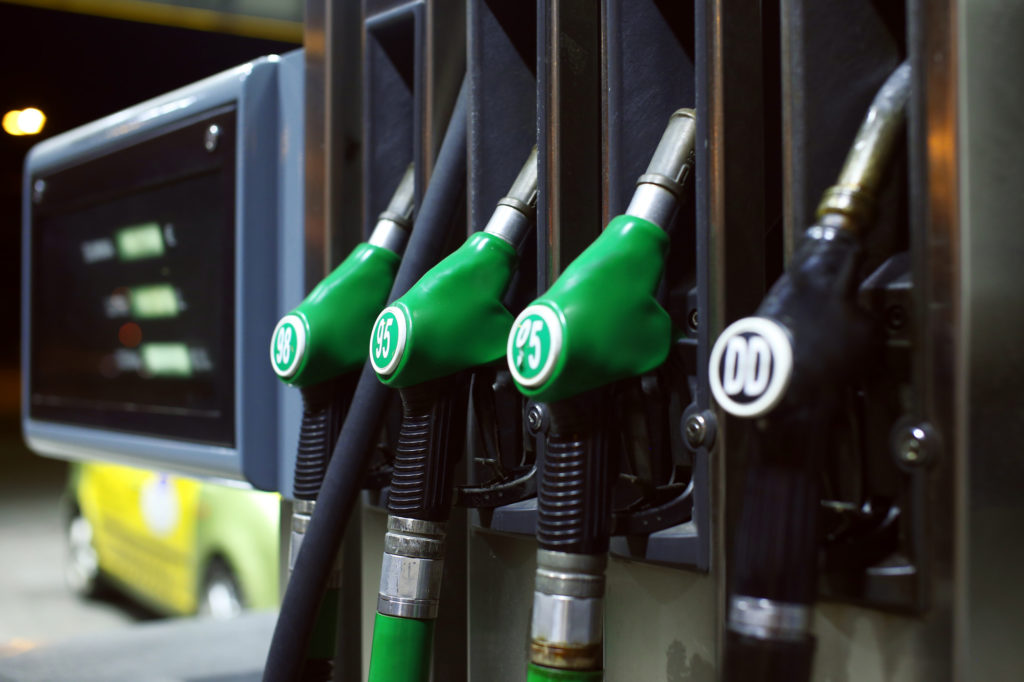
How Long Until Gasoline Goes Bad?
Depending on the type of gas in your car, generally speaking, it can last from 3 to 12 months. Diesel fuel lasts longer than conventional fuel. So while regular gasoline can start going bad after a few months, diesel can sit for up to 12 months without any deterioration.
The amount of ethanol in gas affects how long it lasts as well. The higher the ethanol levels, the faster it will expire.
Factors that Determine the Shelf Life of Gas in the Tank
Many different factors affect how quickly the gas breaks down, oxidizes, and causes deterioration.
Read on for more details on what determines the shelf life of gas in a tank.
1) Temperature Outside
Gas is made out of a mixture of chemicals that help your car start. Some of the chemicals are more volatile. When chemicals are more volatile, they burn more efficiently in the engine. But the volatility also means they evaporate quickly to aid in the efficiency.
New gas burns optimally because the composition of the gas hasn’t evaporated.
This means that the hotter the temperature outside, the faster these chemical compounds evaporate and degrade the quality of the gas over time.
2) Oxidation
Over time, oxidation occurs, even if the gas is secured in the fuel tank. Oxidation of the gas will do more damage to your car.
Gasoline has a component called hydrocarbons. When these components get exposed to oxygen over time, it changes the chemical composition of the gas. When these changes happen, gunk starts to form and build up in the fuel system.
These gunky deposits cause a lot of damage if they clog up your fuel lines or get trapped in your carburetor. If gas has been sitting in your car for a long time, this oxidation can prevent your car from starting at all.
3) Exposure to Water Contamination
There are a few different ways water can find its way into your gas tank. Gasoline itself is hygroscopic. This means that it naturally absorbs moisture from the air.
Condensation is another way water accumulates and mixes with gas. Condensation can happen in the larger tanks at the gas station as well as in your car’s fuel tank.
Cars can handle a small amount of water mixed in the gas without it causing many issues, but more water accumulation can lead to serious engine problems. It can cause corrosion and wear and tear on the engine.
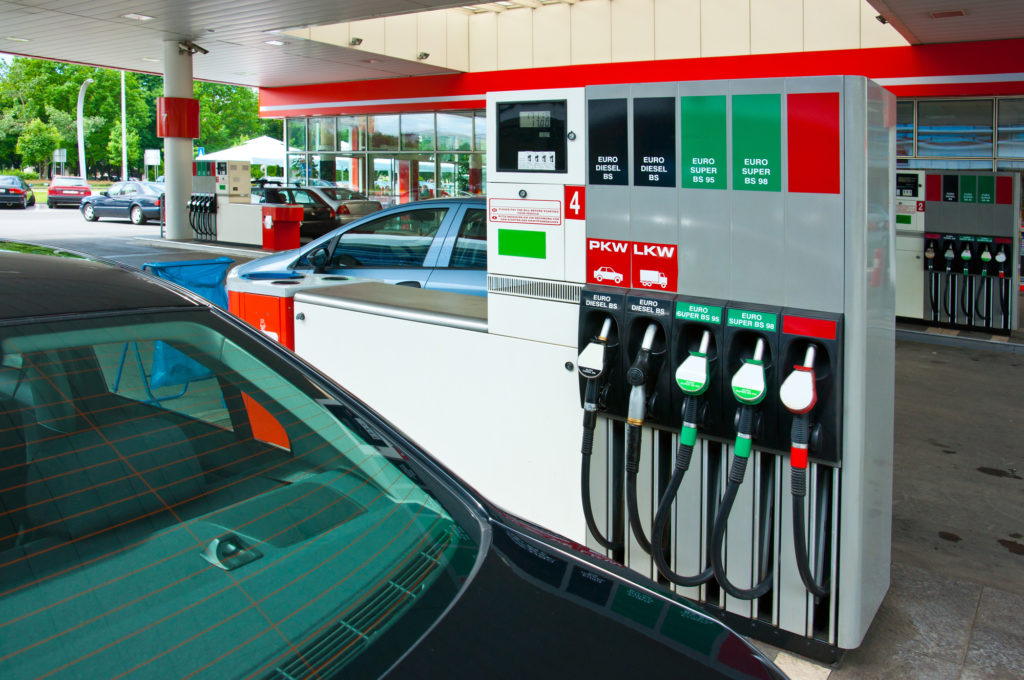
How Do You Prevent Gas from Going Bad in a Tank?
There may be risks to fuel going bad, but there are steps you can take to help prevent this from happening and prolong the shelf life.
1) Only Buy the Amount You Expect to Use
If you don’t have to use your car every day, don’t fill up your gas tank every time you go to fuel up.
This is especially true if you have two cars and only use one of them once every couple of months.
2) Close the Gas Cap Properly
This may seem like a no-brainer, but having a cap that isn’t tight and secure will cause your gas to go bad faster.
If the cap is loose, the gas will evaporate faster and cause it to degrade more rapidly.
When you put new gas in your tank, make sure to turn the gas cap until you hear a click. If you don’t hear a click, it’s not tight enough. If it doesn’t click at all, make sure you have the right size gas cap and replace it with the proper one if it’s too big.
3) Use a Busy Gas Station
Another way to prolong the life of your car’s gas is to fuel up at a busier gas station.
Busy gas stations replenish their supply more frequently. If you buy gas at a gas station doesn’t that doesn’t fill up their supply as often. The gas you’re putting in your car could already be about a month old.
Busier gas stations will supply you with newer gas.
4) Use a Fuel Stabilizer
Adding a fuel stabilizer to old gas won’t restore it, but it can prevent any more deterioration from happening. A fuel stabilizer will prolong the life of the gas, so if you’re planning on putting away a car for a few months, we highly recommend using a fuel stabilizer.
The best way to use a fuel stabilizer is to fill your car up with new gas, then add the stabilizer and drive your car for at least 15 minutes to make sure it mixes in with the gas.
Can Old Gas Ruin an Engine?
For gas to be so bad that it ruins an engine, it would have to be sitting for a very long time under the harshest conditions.
Old gas can cause problems with the engine firing or sputtering, but these can get remedied before it gets so bad that the engine gets ruined altogether.

